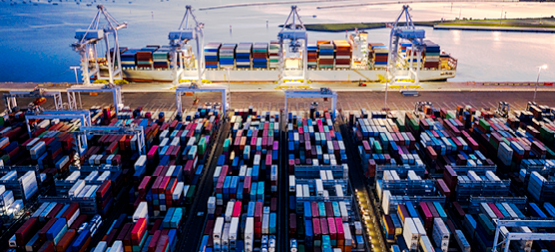Beyond the pandemic: rethinking the supply chain
Contracts
The coronavirus pandemic has underlined the importance of force majeure, hardship and other clauses that deal with supply-chain disruptions, and of ensuring that every link in the supply chain is adequately protected.
Force majeure and governing law
Just as the impact of coronavirus around the world has affected some countries and industries more than others, the application and treatment of the various contractual protections varies by the governing law of the contract.
Generally a failure by a party to perform a contractual obligation gives the other party the right to claim a breach of contract and compensatory damages.
However, where the failure to perform is as a result of circumstances outside the control of the party, the right to claim breach and compensation will turn on the governing law of the contract and the interpretation of relevant contractual terms.
If the contract does not contain a force majeure (or equivalent) provision, the applicable governing law on the treatment of unforeseen circumstances may apply, and the implications vary widely depending on the country in question.
As a result, there is a real risk that the same factual circumstances, governed by the same contractual terms, could lead to widely different outcomes under the laws of different countries. This is particularly problematic for a global supply chain and can lead to a link in the chain being broken.
To further compound the issues, the coronavirus pandemic is very different in nature to the types of events that force majeure provisions normally apply, like a fire or a flood, which have a temporary impact on the performance of obligations under the contract. A more standard force majeure event is limited in time and geographic location, and most standard force majeure provisions, even if they apply, do not contemplate a scenario that is global and has persisted for many months.
Renegotiating long-term contracts
The pandemic has left parties to long-term supply contracts in arrangements that are no longer commercially viable.
It may be possible to agree on revised terms with a counterparty relatively quickly and easily. If not, the process may be more formal and prolonged, and likely involve having to consider the contract-renegotiation law of the applicable jurisdiction.
For more on this, see the section on renegotiating long-term contracts.
Catering for future disruption
It’s not clear when we will overcome coronavirus. But what is clear is that disruption will continue, with the risks of second (and more) waves and the increased risk of insolvency for many businesses.
In order to best protect supply chains, new contracts that are entered into during this period need to contain appropriate mechanisms to address these challenges.
To date, customers and suppliers whose contracts have been impacted by the coronavirus have tended to focus on the application and interpretation of force majeure provisions to determine whether relief is available. But this is likely to change for new agreements that are entered into because:
- the coronavirus pandemic is no longer an unforeseeable event; and
- sophisticated commercial partners are unlikely to accept that COVID-19 of itself justifies failing to perform contractual obligations.
We have already seen, and expect to see more of, detailed contractual regimes setting out the expectations on each party in the event of challenges brought on by the coronavirus pandemic.
Sophisticated commercial operators will look to identify and mitigate risk by:
- allocating responsibility for events and circumstances that may result from supply chain disruption in a way similar to how some companies have approached Brexit planning; and
- ensuring that they have appropriately catered for issues that are genuinely unforeseeable.
Our briefing has more on the implications of the coronavirus for commercial contracts.
Our experience
Advising Airbus on its major supply chain contracts.
Advising a global automotive manufacturer on force majeure claims under its supply agreements.
Beyond the pandemic
Rethinking the supply chain
- Why supply chains are on the agenda
- Supply-chain legal issues
- Transactions
- Collaborations
- Insolvency
- Contracts
- Technology and data
- Regulatory compliance
- Workforce
- Tax
- Renegotiating long-term contracts
- Informal renegotiation
- Escalation
- Litigation/arbitration
- Contract-renegotiation law in nine key jurisdictions – a summary
Meet the team

Dr. Torsten Schreier パートナー
Frankfurt am Main

Dr. Theresa Ehlen パートナー
Düsseldorf, Frankfurt am Main

Menachem Kaplan パートナー
New York

John Choong パートナー
Hong Kong

David Brooks パートナー
London



